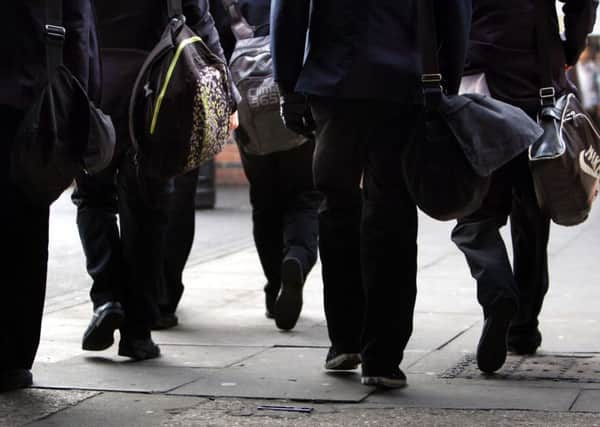YP Comment: Lessons over school places. Time to support our teachers


The first is that more mothers and fathers are engaged with education policy and the need to provide their sons and daughters with the best possible start in life.
The second is the continuing gulf between those schools which meet the Government’s performance criteria – and those that do not.
Advertisement
Hide AdAdvertisement
Hide AdAnd while teachers lament the scrutiny of league tables, Ofsted inspections and the like, these devices have, at the very least, raised awareness that investing in skills, and the next generation, is as important now as it was 20 years ago when Tony Blair came to power and summised his mission statement as ‘education, education, education’.
It will always be uncomfortable that some parents are more adept at playing the school places lottery than others, particularly families from poorer or more socially disadvantaged background, but it should not be a crime to want – and expect – the very best.
That said, the answer to this conundrum rests with the teachers themselves. Inspiring and invigorating lessons can make a material difference to a school’s performance and the challenge is not only recruiting new staff but retaining them in sufficient numbers so their expertise – and enthusiasm – is not lost to the country.
This will not happen, however, if teachers continue to be denigrated by politicians who wouldn’t know where to start if they were asked to deliver a tailor-made lessons to 30 or more students who have varying degrees of academic ability.
Advertisement
Hide AdAdvertisement
Hide AdIf teachers are valued more, there’s every likelihood that more schools will meet the expectations of policy-makers and parents alike. The challenge then is making sure they’re sufficient places to take account of Britain’s growing population, and that is a totally separate subject for discussion.
More in common: UK and Tunisia’s terror victims
THE HEARTBREAK and heartache was self-evident in the voices of the families of the 30 British tourists unlawfully killed by Islamist jihadist Seifeddine Rezgui while holidaying at the previously idyllic Tunisian beach resort.
It’s also understandable that some believe travel firm RUI should have done more before the fateful trip to assess the security situation, though the coroner, Judge Nicholas Loraine-Smith, rejected claims that this amounted to neglect.
Though the Foreign Office is, rightly, reluctant to relax the travel restrictions that were hastily put in place after the gunman overpowered dozens of holiday-makers, Tunisia remains an important ally and this Government should be working with its counterparts there to neutralise the threat posed by jihadists.
Advertisement
Hide AdAdvertisement
Hide AdEchoing the bi-partisanship that was the creed of murdered MP Jo Cox, more unites Britain and Tunisia than divides the two nations, even though this was the worst terrorist attack against Britons, in terms of loss of life, since the 7/7 suicide bombings in London. The first against 21st century terrorism is a global struggle which demands the closest of co-operation between those intelligence agencies that have the invidious task of identifying perpetrators of mass murder before they strike. After all, this attack should not just be measured by the grim death toll, but the many Muslims left out of work because their country’s tourism industry is in financial ruin.
Society’s duty to protect victims of pornography
JUST because the prisons are overcrowded is no justification for society being asked to compromise its attitudes towards those paedophiles who view indecent images.
Such abhorrence is indefensible and the suggestion from Simon Bailey, the police chief in charge of child protection, that only the most serious cases be prosecuted is, frankly, offensive.
Unless each occurrence is investigation, the level of threat cannot to be established. And, amid the hand-wringing yesterday, insufficient regard was given to the plight of the ‘victims’ – the children and young people who are persuaded, or forced, to pose provocatively to satisfy the gratification of those people addicted to pornography. After all, these are the innocent individuals who will be even more vulnerable in the future if the police, and courts, downgrade the seriousness of this criminal offence. Does Mr Bailey and his colleagues really want this on their consciences?